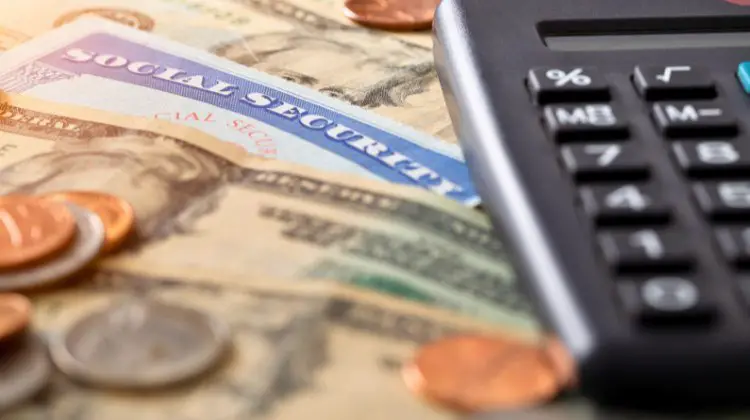Did you know there’s a possibility you might have money waiting for you from the government? We’re talking about unclaimed stimulus checks, which could be a significant amount. Millions of Americans didn’t receive their Economic Impact Payments (EIPs) during the pandemic, and the IRS is working to rectify this.
The IRS sent out three rounds of stimulus checks, officially termed “economic impact payments,” between March 2020 and March 2021. A staggering $814 billion was sent to households to provide support during the pandemic. However, many people never received their payments for various reasons.
Table of Contents:
- Why Didn’t I Get My Stimulus Checks?
- Unclaimed Stimulus Checks: Next Steps
- How to Get Missed Stimulus Payments
- What Else Can I Do to Save on My Taxes?
- What’s the IRS Fresh Start Program?
- Conclusion
Why Didn’t I Get My Stimulus Checks?
Several factors can impact this. Common problems include simple issues like address changes or updated bank account details, but tax issues can also play a role.
Here are some possible reasons:
- You changed your address recently.
- You updated your bank account information.
- You didn’t correctly manage your taxes.
- Your checks were lost or stolen.
It’s not too late to claim what’s yours. There’s still time, but you need to act quickly.
Unclaimed Stimulus Checks: Next Steps
First, it’s crucial to determine if you’re actually owed any money. The IRS has resources to help with this. It might seem a bit confusing at first, but finding your money could provide you with extra financial support.
To get started, you’ll want to confirm whether you received your payment(s). The IRS website recommends checking these sources:
- Online Account: Visit your IRS Online Account. Under the tax records page, you’ll find an “Economic Impact Payment Information” section, which indicates if and how much stimulus you were sent.
- IRS Notices: Refer to the notices mailed to the address the IRS had on file. There are a few different notice numbers: Notice 1444 (1st Payment – tax year 2020), Notice 1444-B (2nd Payment – tax year 2020), Notice 1444-C (3rd Payment – tax year 2021), and Letter 6475 (confirms payments for tax year 2021).
What If Payments Were Sent, but Never Received?
You’re not out of luck, even if the money was already issued to you. If a stimulus check was sent to you but was lost, stolen, or somehow destroyed, the IRS can investigate what happened.
To initiate a payment trace, contact the IRS by calling 800-919-9835. Alternatively, you can send the IRS a completed Form 3911, Taxpayer Statement Regarding Refund.
How to Get Missed Stimulus Payments
Individuals who missed their stimulus checks might still have a chance to receive their money. This money is available in the form of a Recovery Rebate Credit.
Depending on the missed payment, a Recovery Rebate Credit will need to be filed as part of either your 2020 or 2021 federal tax return. The initial rounds of stimulus payments were distributed in 2020, and the final, third round, in 2021.
Missed the 1st or 2nd Payment
If you were eligible for either of the first two rounds of stimulus payments, you need to request this payment. It’s very important to note that you would do so on your 2020 tax return.
These Economic Impact Payments began rolling out at the end of 2020. One of the stimulus checks at this time provided up to $1,200 per adult, plus an additional $500 for each qualifying child.
Round two sent another set of stimulus checks, providing up to $600 per eligible individual. An additional $600 was available for each qualifying child. The total amount could be substantial if this scenario applies to you. A tax professional could also assist in properly filing to claim missing payments.
Missed the 3rd Payment
To receive the last economic impact payment, you must request it on your 2021 tax return. This payment began reaching households at the beginning of 2021.
Some of these stimulus checks could total $1,400 each. In many cases, families with children could receive even more than that.
The IRS also has information in multiple languages including Kreyòl ayisyen. Check the website to find details for speakers of other languages too.
Help Filing Taxes
You can file your taxes yourself. If you didn’t receive any payments and now need to file either 2020 or 2021 taxes to claim the rebate credit, Volunteer Income Tax Assistance (VITA) sites are available.
You also have the option of setting up an installment agreement for a payment plan. This helps make things more manageable if you owe more than you are getting. They can be particularly helpful for preparing 2021 tax returns.
VITA and TCE (Tax Counseling for the Elderly) sites assist with the preparation of your federal tax return and many states have locations. Here is some information on these services:
| Program | Service Provided | Who Qualifies? |
|---|---|---|
| VITA | Free basic income tax return preparation with electronic filing to qualified individuals. | People who generally make $64,000 or less; People with disabilities; and Limited English-speaking taxpayers. |
| TCE | Free tax help, particularly for those age 60 and older, specializing in questions about pensions and retirement-related issues. | Primarily serves people age 60 and older. No income limit. |
What Else Can I Do to Save on My Taxes?
Beyond stimulus payments, there are additional tax advantages you might be eligible for as well. Filing taxes allows individuals with specific income levels to claim credits that can provide additional cash flow.
Two very worthwhile options are:
- Child Tax Credit (CTC).
- Earned Income Tax Credit (EITC).
An EITC of up to $7,830 and a CTC providing $2,000 per child is substantial. By taking this step, you could potentially see a real, tangible financial boost.
You should always keep your tax documents to be best prepared, but things like Form W-2 can be obtained by contacting your employer. Getting organized is key. Also look into using the tax withholding estimator.
What’s the IRS Fresh Start Program?
The IRS Fresh Start Program is designed for those who need it. If you have concerns about debt and other payment plan requirements, this program has the potential to provide support.
It can make managing penalties and payments easier due to the assistance it offers. It’s a straightforward tool designed to help people catch up and manage their tax obligations.
Conclusion
Stimulus checks served as lifelines for many Americans during challenging times. However, because some individuals did not receive theirs, unclaimed stimulus checks still exist. Whether due to address changes, bank account updates, or missed tax payments, there’s money currently in limbo.
Even if you’re not behind on taxes, filing them will determine your eligibility for these funds. You might also discover that you qualify for EITC or CTC tax benefits, potentially leading to even more financial relief. Checking your online account will be the first thing to do to get the process going.









Reader Interactions